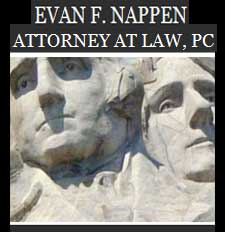

New Jersey –-(Ammoland.com)- In a brief dated November 7, 2016, submitted in the Appellate case of State v. Lambert, the Office of the Attorney General concedes that New Jersey’s Stun Gun Ban is unconstitutional, stating:
“[T]he State agrees with defendant that New Jersey’s stun-gun statute, N.J.S.A. 2C:39-3h, is unconstitutional in light of Caetano v. Massachusetts, 136 S.Ct. 1027 (2016), and defendant’s conviction under that statute should be vacated in the interests of justice.” (See attached.)
This position was in response to a brief filed on behalf of Appellant Lambert by Joshua Sanders, Esq., of the New Jersey Office of the Public Defender Appellate Division. (See attached.)
In this case, Lambert was charged in 2009 with possession of a stun gun in violation of N.J.S. 2C:39-3h, as well as other non-weapons charges.
Although the appellant did not raise this constitutional issue in his original 2015 plea, the Attorney General confirms in its brief:
“[T]he State agrees with defendant’s reading of United States Supreme Court precedent. To briefly recap Second-Amendment jurisprudence, the United States Supreme Court held that “the Second Amendment extends, prima facie, to all instruments that constitute bearable arms, even those that were not in existence at the time of the founding,” District of Columbia v. Heller, 554 U.S. 570, 582 (2008), and that this “Second Amendment right is fully applicable to the States[.]” McDonald v. Chicago, 561 U.S. 742, 750 (2010).”
The AG further recognizes:
“The State is unaware of any legitimate basis to distinguish New Jersey’s stun-gun statute from Massachusetts’ statute. The New Jersey stun-gun statute, like the Massachusetts statute, criminalizes mere possession of a stun gun….. Since both statutes criminalize mere possession of a stun gun, for the reasons outlined in Caetano, New Jersey’s stun-gun statute, like Massachusetts’s statute, violates the Second Amendment.”
Evan F. Nappen, Esq., whose practice focuses on firearm and weapons law, stated in response to this recent development, “This is going to help a lot of people, including those who are looking for a reliable, non-lethal form of defense.”
Additionally, Nappen confirmed that he presently has a number of cases in which this will be of help.
About:
Evan Nappen (www.EvanNappen.com) is a criminal defense attorney who has focused on New Jersey firearms and weapons law for over 23 years. He is the author of the New Jersey Gun Law Guide. Visit his website at www.EvanNappen.com
